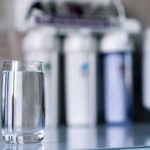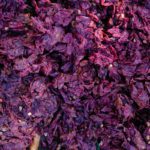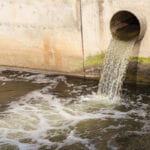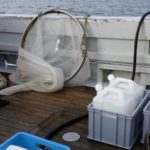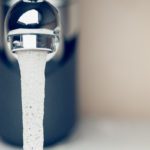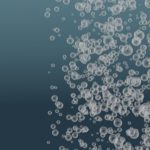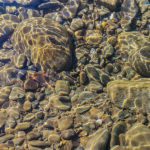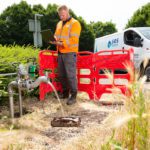Licence to spill? Legislative status of government’s new plans unclear
River conservation groups reacted with alarm to the news (on 29 August) that the government plans to ease restrictions on developers' need to ensure...
Smart standpipe KTP supports PhD first for water technology firm
Aquacheck Engineering is celebrating the graduation of the first student to be awarded a PhD via its partnership with Manchester Metropolitan University and Innovate...
Innovate UK funding for technology that generates water out of air
A first-of-its-kind ‘atmospheric water harvester’ has secured funding from Innovate UK. NovNat Tech is developing a technology that can generate water out of air,...
Tannins: A possible answer to microplastic pollution?
Scientists at UBC’s BioProducts Institute find that if you add tannins to a layer of wood dust, you can create a filter that traps virtually all...
Widespread contamination of PFAS in drinking water reported by US EPA testing results
The Environmental Protection Agency (EPA) released its first tranche of testing data for PFAS in drinking water, on 17 August, which seemed to find...
Levidian project kicks off in Manchester, producing hydrogen and graphene from wastewater
A Government-funded collaboration will see Levidian’s LOOP technology used to decarbonise biogas created by wastewater treatment in United Utilities’ Manchester Bioresources Centre at Davyhulme.
LOOP...
Somerset tank project will store 800k litres of sewer water
A £9.5 million project to boost the storage and treatment of wastewater gets underway near Bridgwater, Somerset this autumn, says Wessex Water.
Construction teams will...
Even treated wastewater affects our rivers, and new study attempts to characterise species shift
New study seems to show that effluents from wastewater treatment plants change the balance of invertebrate communities in Hesse’s waters
Effluents from wastewater treatment plants...
“Modern chemistry is rubbish”: Time to wake up to environmental effects, suggests commentary
Modern day chemists need to broaden their horizons and consider the effects of chemistry “beyond the reaction vessel and the fume hood”, according to...
Study increases probability of finding water on other worlds by x100
A new analysis appears to show that there are probably many more Earth-like exoplanets with liquid water than had been thought, significantly increasing the...
Comment: Pump sector welcomes announcement on CE Marking
The British Pump Manufacturers Association (BPMA), on behalf of the £1.9 billion UK pump sector has welcomed the recent announcement from the Department of...
Biosurfactants might offer an environmentally friendly solution for tackling oil spills
Can biosurfactants increase microbiological oil degradation in North Sea seawater? An international research team have been exploring the question and say the results reveal...
Microplastics collect heavy metals, reports study from Ulaanbaatar
Surface cracks and biofilms on plastic particles might help spread pollution
Concerns about microplastic pollution arise not only because of the particles themselves, but...
Testing for halogens in wastewater will soon become mandatory
SciMed, a UK distributor of lab equipment, gives a brief rundown of what's required.
There are a number of AOX/TOX regulations in force, for example,...
Trial “brings hope for phosphate mitigation funding”
Somerset Council is hoping to secure Government funding to deliver phosphate mitigation measures which will unlock the delivery of 18,000 new homes across the...
Ofwat announces £100 million fund to boost action on water efficiency
Ofwat is calling for ideas and input as it develops a new £100m fund to help save water.
The fund is being set up to...
Innovative wastewater emissions measurement tech gets a first outing with Scottish Water
The utility is first on the block with UK and sector deployment of Grandperspective's scanfeld®.
Described as a revolutionary new gas emissions monitoring technology,...
Research sheds light on mysterious stability of nanobubbles
They're helpful in processes like water treatment, as you can get the job done without chemicals, but how stable are they? And under what...
Plastic is changing the behaviour of the world’s river sediment
A University of Leicester academic has led a study which appears to find that plastic pollution is changing the way riverbeds behave.
Plastic particles in...
Views sought on UK water innovation strategy
Sector-wide views on the UK 2050 Water Innovation Strategy are being sought, to inform the future direction of the joint document.
Spring, the UK &...




